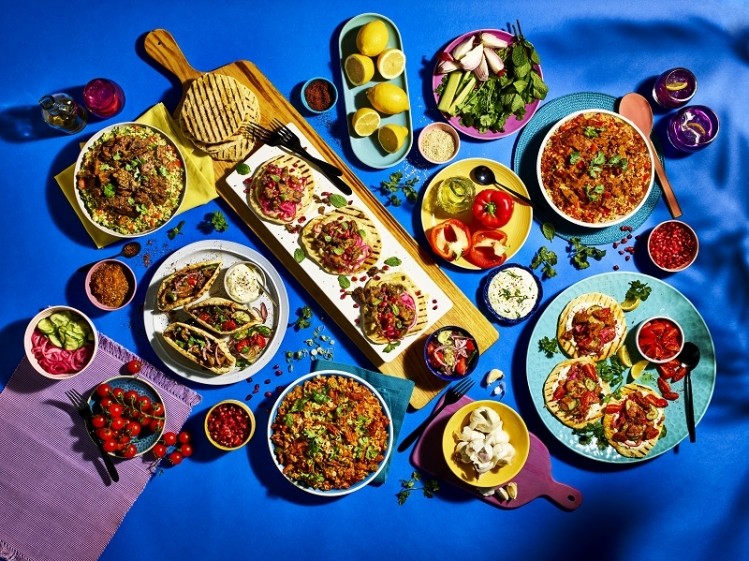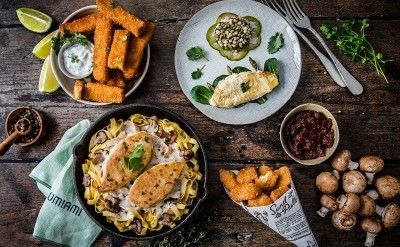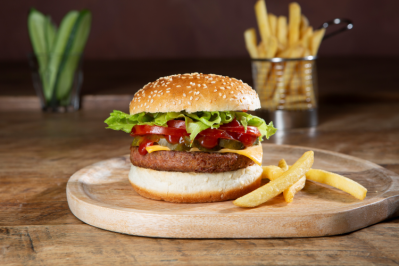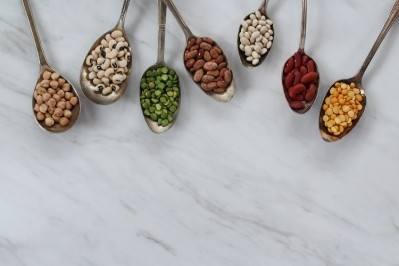Designing products for regional preferences offers growth opportunity in meat-free, says Quorn

Adam Kemsley, Head of New Product Development at Quorn Foods, told a Future Food-Tech webinar that although the faux meat market is still dwarfed by the $1.4 trillion global meat industry, the alternatives sector is rapidly accelerating into the zeitgeist.
“This marketplace is exploding,” he said. “It’s grown so quickly, and it’s global. And the ways we worked today and yesterday aren’t going to be the same in the future.”
In the UK, the meat-free category is worth £597 million and is growing 30% year-on-year, he noted. The sector has been enjoying double-digit annual growth since 2017. As such, all meat-free companies are “trying to wrestle with how we set ourselves up for success”.
But there are question marks surrounding both the organoleptic and nutritional qualities of meat alternatives, which presents a challenge to producers. “The market is being driven by meat reducers and flexitarians. They don’t compromise on flavour, texture and appearance of those products,” Kemsley explained. “The key challenge for Quorn is how do we improve accessibility, affordability and taste.”
‘We need to design for regional preferences’
One area offering innovation white space, he suggested, is developing alternatives in line with regional preferences.
“We recognise there are regional areas where we want to win in,” he observed. “Snacking on the go and snacking in home is growing exponentially particularly in meat-free. But what we recognise is that snacking can’t be done globally, it has to be done regionally. The classic example is the Scotch Egg, picnic egg or cocktail sausage – outside the UK many people won’t know what that is. But in the UK, it’s huge as an opportunity. Every country has their own snacking variety which can translate to meat-free well, but we need to do that a regional level.”
Sausages are another example. “The Cumberland sausage in the UK is very different to the Frankfurter or Bratwurst – and that’s why we need to design for regional preferences.”
Quorn is also looking at proteins other than mycroprotein such as pea to make new novel textures.
An advantage of its key ingredient mycroprotein -- a fungi-based protein that is high in fibre and low in saturated fat and grown via fermentation – is a neutral taste free of off notes that allows for flavours to be built upon. “But in order to get into more novel spaces and mimic different meats, we will have to play with other proteins and combine them together,” Kemsley explained. “We also want to start looking at the health benefits of mycroprotein in combination with things like pea protein.”
A call for solutions to the alternative protein sector’s texture and taste challenge
Quorn is part of the latest Future Food-Tech innovation challenge which aims to unlock new talent within the industry and enable opportunities for collaboration.
Quorn has tasked start-ups to make products that can mimic whole meat cuts. “There are some technical food challenges we’re trying to overcome,” elaborated Kemsley. “The first to improve the cooking experience: how can we get our products to mimic meat-like products in the pan to get that sizzle, succulence and meaty colour right. The second area is around texture development, bite and chew to get closer to the juiciness of real meat.”
Another other area concerns shelf life. “If you want to win in chilled you need a shelf life well up to 30 days to ensure that our retail partners have enough shelf life to sell the product through and the consumer has enough shelf life to take it home and use it.”
“We are looking for companies leveraging technology to create realistic poultry whole muscle shapes, textures and flavours: a full product that delivers on that succulent taste that comes from different chicken meats,” added Simone Sheehan, Head of Consumer and Sensory Science at Quorn Foods. “If we can crack whole poultry it will help us crack making the swap to meat free easy for consumers.”
Delivering entirely new gastronomic experiences to shoppers
The other company involved in the latest Future Food-Tech innovation challenge is ingredients supplier Roquette. The French firm, which last year signed a three-year pea protein supply deal with US-based Beyond Meat, wants the plant-based sector to deliver entirely new gastronomic experiences to the consumer using a variety of crops, formats and technologies.
Sergio Neves, Head of Open Innovation at Roquette, said he hoped to see a dazzling array of new plant-based products, cuisines with unique organoleptic and sensory attributes and which tap growing consumer demand for health, nutrition, sustainability and convenience. Categories could encompass plant-based meat, dairy, drinks, nutrition and bakery.
“What we’re really trying to enable is a new gastronomy and consumer experience,” he said. “We want to make sure there’s a new gastronomy that will be enabled by plant-based solutions which brings a new experience for consumers in terms of new flavours and textures. We are waiting for something dazzling for the future. We have the ingredients, but we need the innovators.”
Offering an example, he said “extruded snacks that use plant-based proteins… really give you a sense of something different”.
























